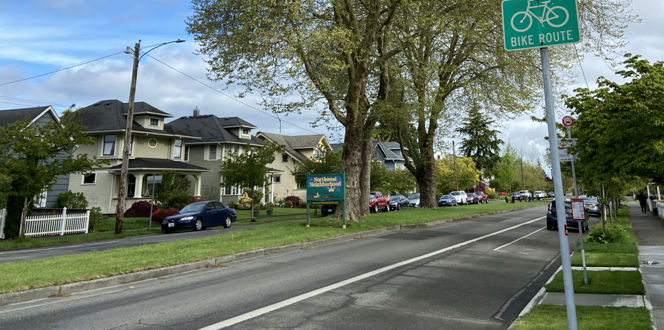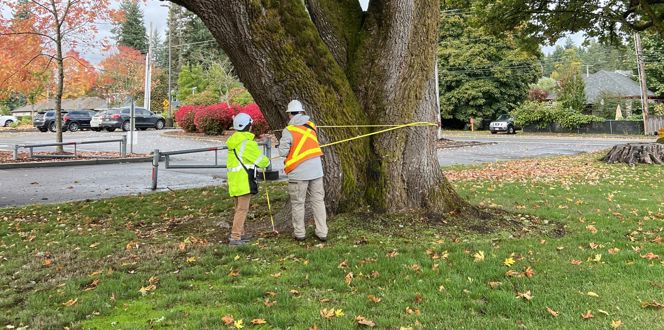City Of Portland, OR
Davey Resource Group performed a detailed analysis and modeled a 10-year maintenance cycle approach to help increase tree canopy in Portland, OR’s, lower income neighborhoods.
Project Narrative:
In Portland, a street tree is any tree growing in the city’s rights-of-way. Street trees are a public asset—owned and managed by the City of Portland. However, Portland currently has no active street tree maintenance program and instead places this responsibility, including removal and replanting, on the adjacent property owner. The current approach relies on every property owner in the city to be aware of their responsibility, possess knowledge of proper tree care, and have the financial means to fulfill that role.
The city has learned that there is a strong correlation between low canopy and lower median household incomes (Growing a More Equitable Forest, 2018). Community members in these low-canopy neighborhoods are also disproportionately people of color, immigrants, and/or refugees. For the city to develop an equitable urban forest, it needed to explore the costs of tree care and understand the advantages of relieving the burdens placed on adjacent property owners.
Using Equitable Strategies To Build Healthier Urban Forests
DRG Municipal Urban Forestry Specialists, performed detailed analysis of their inventory (218,602 street trees) and modeled a 10-year maintenance cycle approach along with options for accelerated maintenance programs. DRG worked with GIS to create detailed annual work management units around the city and create an annual budget for planning. Going forward, the city will be challenged to improve the condition of its street tree populations in lower income and lower canopy neighborhoods. Implementing some or all of the strategies outlined in this report will help move the city towards a healthier and equitable urban forest.





